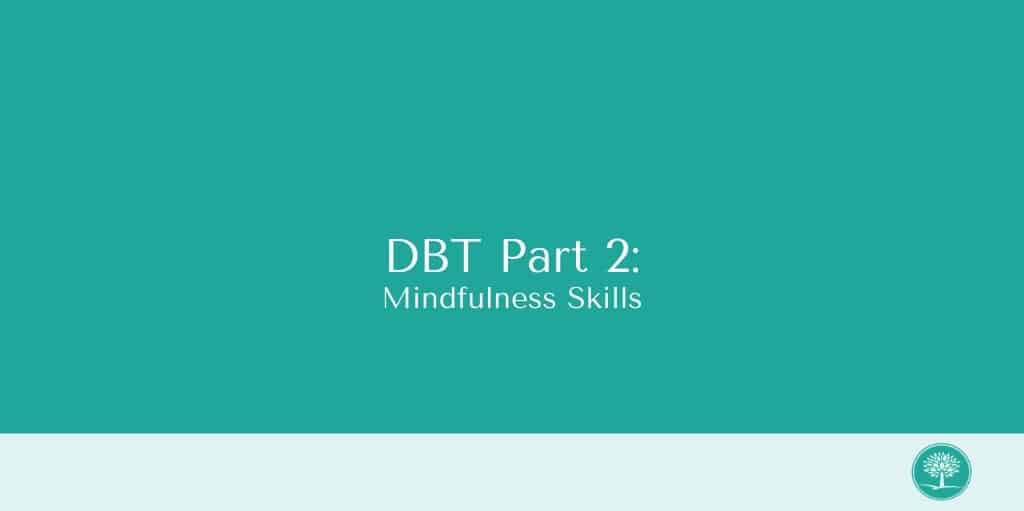Relapse Workshop: Reducing Relapse Risk
Estimated watch time: 4 mins 13 secs
Summary:
This video guide walks you through some of the steps you can take to reduce your relapse risk, including building a support system. Your support system can be loved ones, your 12-step group or anyone you feel comfortable with. Reducing relapse risk is reliant on being prepared and strategic in how you approach and cope with triggering situations.
Video Materials:
Other Videos in Series:
u003colu003ern tu003cliu003eu003ca href=u0022https://www.therecoveryvillage.com/resources/videos/learning-from-relapse/u0022u003eRelapse as a Learning Opportunityu003c/au003eu003c/liu003ern tu003cliu003eu003ca href=u0022https://www.therecoveryvillage.com/resources/videos/self-forgiveness-after-relapse/u0022u003eLearning Self- Forgiveness After Relapseu003c/au003eu003c/liu003ern tu003cliu003eu003ca href=u0022https://www.therecoveryvillage.com/resources/videos/relapse-warnings-signs/u0022u003eWarnings Signs of a Relapseu003c/au003eu003c/liu003ern tu003cliu003eu003ca href=u0022https://www.therecoveryvillage.com/resources/videos/reducing-relapse-risks/u0022u003eHow to Reduce Relapse Risksu003c/au003eu003c/liu003ern tu003cliu003eu003ca href=u0022https://www.therecoveryvillage.com/resources/videos/addictive-behaviors/u0022u003eUnderstanding Addictive Behaviorsu003c/au003eu003c/liu003ern tu003cliu003eu003ca href=u0022https://www.therecoveryvillage.com/resources/videos/relapse-action-plan/u0022u003eHow to Make an Action Plan for Risky Situationsu003c/au003eu003c/liu003ern tu003cliu003eu003ca href=u0022https://www.therecoveryvillage.com/resources/videos/coping-stress/u0022u003eHow to Identify u0026amp; Cope with Stressorsu003c/au003eu003c/liu003ern tu003cliu003eu003ca href=u0022https://www.therecoveryvillage.com/resources/videos/lifestyle-changes-for-recovery/u0022u003eLifestyle Changes for a Healthy Recoveryu003c/au003eu003c/liu003ern tu003cliu003eu003ca href=u0022https://www.therecoveryvillage.com/resources/videos/balanced-living/u0022u003eHow to Live a More Balanced Lifeu003c/au003eu003c/liu003ernu003c/olu003e
Related Content:
u003cdiv class=u0022elementor-toggle-itemu0022u003ernu003cdiv id=u0022elementor-tab-content-5332u0022 class=u0022elementor-tab-content elementor-clearfix elementor-activeu0022 role=u0022tabpanelu0022 data-tab=u00222u0022 aria-labelledby=u0022elementor-tab-title-5332u0022u003ernu003ch5u003eAccompanying Worksheets:u003c/h5u003ernThere are lessons accompanying each video that you can u003ca href=u0022https://recovery.force.com/app/s/login/?ec=302u0026amp;startURL=%2Fapp%2Fs%2Fu0022 target=u0022_blanku0022 rel=u0022noopener external nofollowu0022u003eaccess through our recovery portal, Swellu003c/au003e or you can download, u003ca href=u0022https://www.therecoveryvillage.com/wp-content/uploads/2020/11/Online-Relapse-Program-Worksheets_compressed.pdfu0022u003ehereu003c/au003e. (Lesson 4)rnu003ch5u003eu003cstrongu003eMedically-reviewed articles:u003c/strongu003eu003c/h5u003ernu003culu003ern tu003cliu003eu003ca href=u0022https://www.therecoveryvillage.com/drug-addiction/relapse/#Common_Relapse_Triggersu0022u003eCommon Relapse Triggersu003c/au003eu003c/liu003ern tu003cliu003eu003ca href=u0022https://www.therecoveryvillage.com/recovery/relapse/help-someone-experiencing-relapse/u0022u003eHow to Help Someone Who is Experiencing a Relapseu003c/au003eu003c/liu003ernu003c/ulu003ernu003ch5u003eu003cstrongu003eProfessional webinars:u003c/strongu003eu003c/h5u003ernu003culu003ern tu003cliu003eu003ca href=u0022https://www.therecoveryvillage.com/professionals/webinars/relapse-prevention-changing-world/u0022u003eRelapse Prevention: “Doing” Recovery in this Changing Worldu003c/au003eu003c/liu003ern tu003cliu003eu003ca href=u0022https://www.therecoveryvillage.com/professionals/webinars/advanced-recovery-systems-recovery-panel/u0022u003eOur Staff’s Stories of Recoveryu003c/au003eu003c/liu003ernu003c/ulu003ernu003c/divu003ernu003c/divu003e
Transcript:
u003ch3u003eRelapse Workshop: Reducing Relapse Risku003c/h3u003ernu003cemu003eThis lesson is about reducing relapse risk.u003c/emu003ernrnSo in order to reduce your relapse risk, you need to build a support system. And that might include a treatment team, if you’re in a treatment center. If you’re not in a treatment center, you can build your own out of some of the following options.rnrnYou might want to have a therapist. You might want a sponsor which you can find at a 12-step meeting. You might want to rely on a partner. Perhaps your partner is somebody that’s supportive to your recovery. Friends who are supportive to your recovery. And you may need to go to 12-step meetings or Smart Recovery meetings.rnrnAnd you need to be able to identify your relapse triggers. Those people, places and things that make it more likely that you’re going to relapse. You want to avoid situations where drugs and alcohol may be present. In the beginning in particular, you want to create an environment that’s as safe as possible for you. So the less frequently you expose yourself to drugs or alcohol, the more likely it is that you’re not going to reach for it in a difficult moment.rnrnSo if you can not avoid a triggering situation, you want to be strategic. You’d want to go to that event with a sober friend or have your own car. You might want to arrive late and leave early. And you want to think ahead of time and decide how you’re going to handle cravings if they hit.rnrnSome things that you can do is to keep resources handy. Some people like to carry a little note card of their coping skills lists so that they can easily refer to them. You might write down on it some of the distraction strategies that you like. For example, you can count backwards from one hundred down to one. You might want to list animals that start with each letter of the alphabet, starting with A’s, all the animals you can think of. And then all the B animals you can think of. Keep in mind that you’re trying to ride out an urge which tends to last 15 to 20 minutes.rnrnYou can take five slow, deep breaths. If you breathe in on a count of six, and breathe out on a count of eight, five times, it will take the edge off what you’re feeling emotionally. You can also do five, four, three, two, one things you can see and things you can hear. Look around the room. Identify five things you see and then five things you hear. And if you’re not feeling calmer, then do four. You want to make sure you pick four different things you see and four different things you hear and keep going through three, two and one. The idea is just to take your mind off of using and think of something else.rnrnYou’ll also want to have phone numbers of support team members. Make sure these are put in your favorites so that you’re able to easily reach out to a friend if you need.rnrnYou also find it helpful to establish a daily recovery-focused practice, so that might be anything at all that you think helps you with your recovery program. But you want to make sure you stay focused on recovery every day. And that could be by using daily meditation. You might go to group therapy. You might choose to go to 12 step meetings. You might do some yoga or get involved in some community activities or some sort of spiritual practice. Perhaps there’s a church or organization that you like to be involved in. Or prayer or perhaps spirituality means something different to you. And it doesn’t need to be the same thing every day. You can use a combination of these or other things that will help you be focused on your recovery on a daily basis as long as you’re connecting the two things to each other.rnrnu003cstrongu003eSo in our next lesson we’re going to talk about common addictive behaviors.u003c/strongu003ernrnThank you for choosing The Recovery Village. If you or a loved one are struggling with mental health or substance abuse and would like to find out more about the programs we offer, please reach out to us directly at u003ca href=u0022tel:855-387-3291u0022u003e855-387-3291u003c/au003e.
Other Addiction & Mental Health Resources
The Recovery Village has several, free resources for those living with addiction or mental health conditions and their loved ones. From videos, to clinically-hosted webinars and recovery meetings, to helpful, medically-reviewed articles, there is something for everyone. If you need more direct help, please reach out to one of our representatives.









